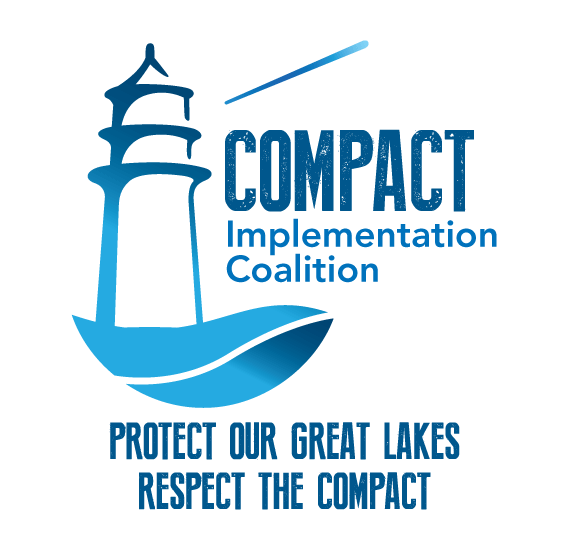Toledo Blade: Put away the straw
Put away the straw, Toledo Blade, August 26, 2015
Alongside urgent threats to Lake Erie and the other Great Lakes — harm done by toxic algae, potential or actual infestation by invasive species such as Asian carp — are longer-term challenges to the lakes’ integrity, notably efforts to drain large amounts of water from them. The latest scheme along these lines comes not from a thirsty Sunbelt state, but from a city in the Great Lakes state of Wisconsin. That makes it no less odious.
The implications of the proposal by the city of Waukesha to divert water from Lake Michigan are not limited to Wisconsin, but also would affect Ohio, Michigan, and all other Great Lakes states. The diversion plan would violate the Great Lakes-St. Lawrence River Basin Water Resources Compact, the 2008 agreement among the eight states that border the lakes to protect their water. Ohio Gov. John Kasich and Michigan Gov. Rick Snyder have every reason to exercise their authority under the compact to veto the plan.
Click here to read more Blade editorials
Waukesha, a suburb of Milwaukee, seeks to divert permanently more than 10 million gallons from Lake Michigan on an average day, and as much as 16.7 million gallons on some days. Municipal officials say the aquifer the city has relied on for water has become excessively contaminated with radium. They promise to treat and return most of the water they take from the lake.
It’s the first application to divert water outside the Great Lakes basin under the compact. The Wisconsin Department of Natural Resources appears ready to approve the plan, as does Gov. Scott Walker.
Kristy Meyer, the managing director of agricultural, health, and clean water programs for the Ohio Environmental Council, notes that the Great Lakes compact allows communities in the lakes’ watershed to divert water — but only if the diversion is reasonable and a community has exhausted every other option. Neither of these conditions applies to the Waukesha plan, she says.
Waukesha’s demand for water has dropped since the late 1980s, and its projected demand falls far short of the water it seeks to take. Although the city claims it is acting on behalf of other communities in its actual or potential water service area, officials in those towns and cities say publicly they don’t need more water. Waukesha could meet its water needs, at half the cost to ratepayers, by upgrading its current groundwater wells to meet drinking-water safety standards, Ms. Meyer says.
Why does this matter to Ohioans? If Wisconsin approves this unjustified diversion from Lake Michigan, all other lakes — and their states — inevitably will face similar demands, not just internally but also from outside the Great Lakes region. If that happens, the compact that protects the lakes would be fatally weakened.
Governor Kasich has resisted previous proposals to divert big quantities of water from Lake Erie’s watershed. He needs to be just as disdainful of this proposal. In the process, he could distinguish himself favorably from Governor Walker, with whom he is competing for the Republican presidential nomination in 2016.
“Governor Kasich has a say, as do the other [Great Lakes] governors, in this diversion request,” Ms. Meyer told The Blade’s editorial page. They need to make themselves heard.
The Great Lakes compact acknowledges that what happens in any part of the lakes affects them all, as well as the tens of millions of people, the wildlife, and the natural areas that rely on the lakes. Now would be a good time for Mr. Kasich and his counterparts to affirm that understanding.
Read more at here.
